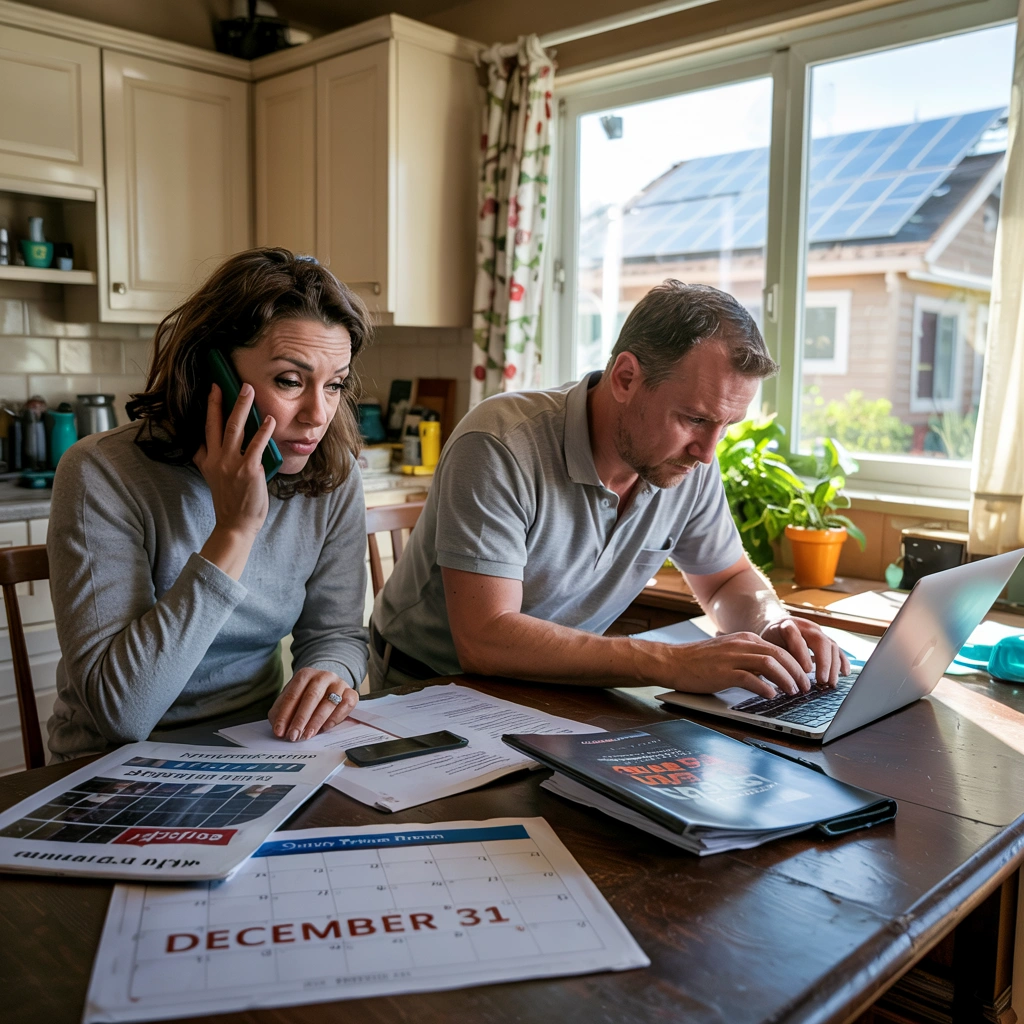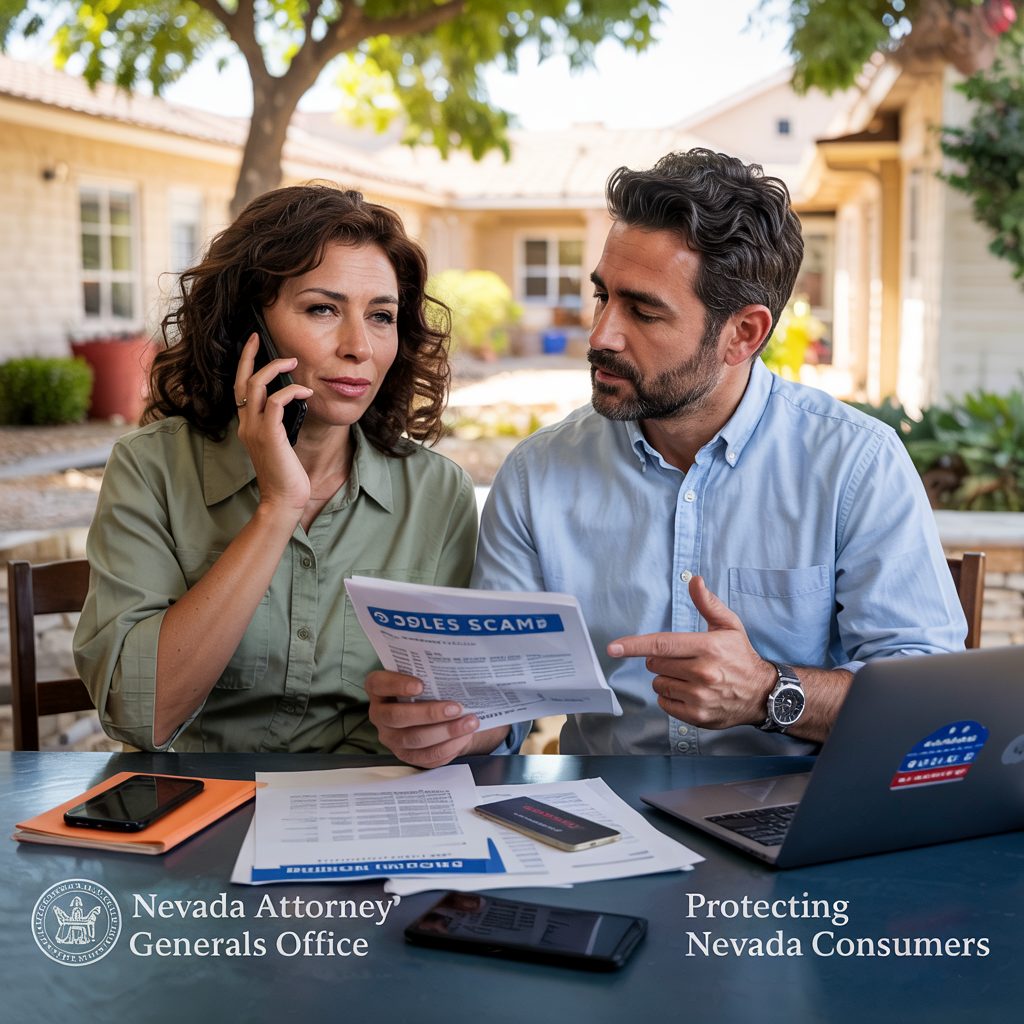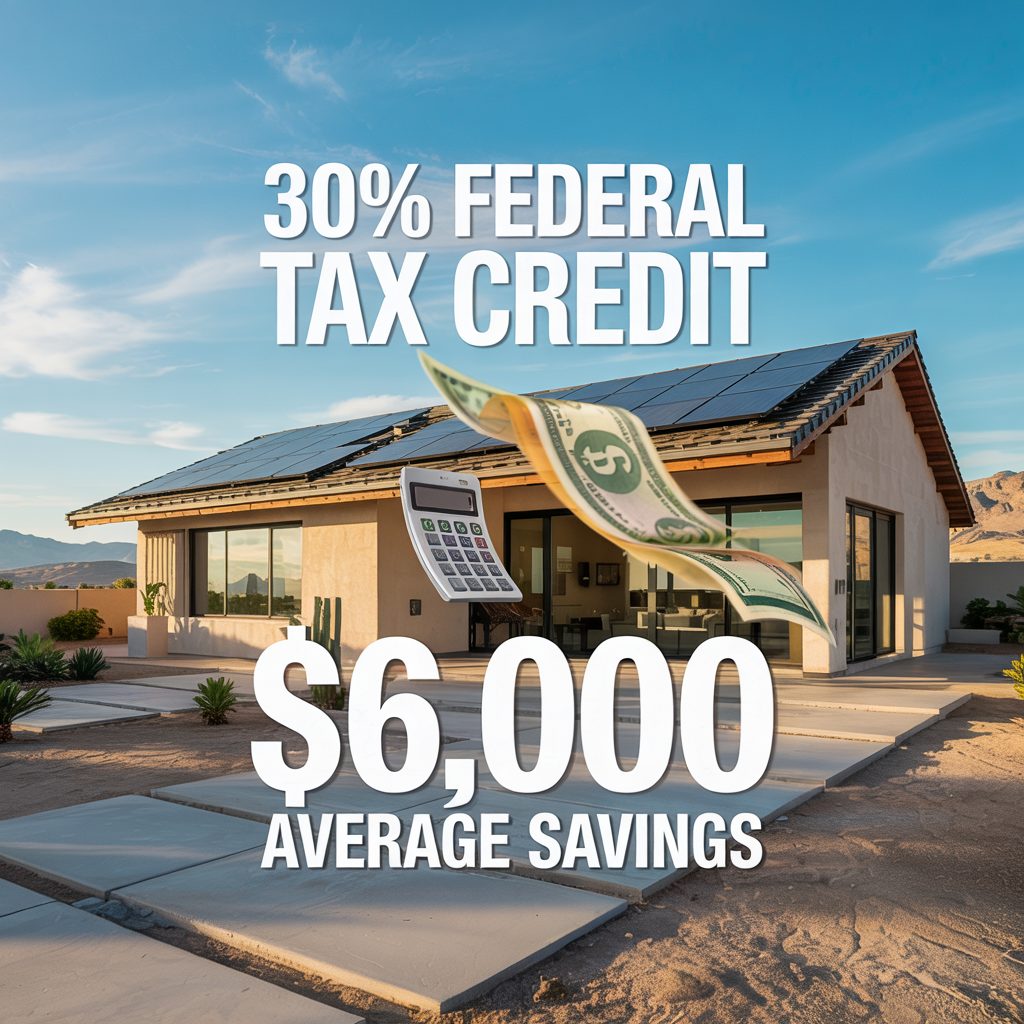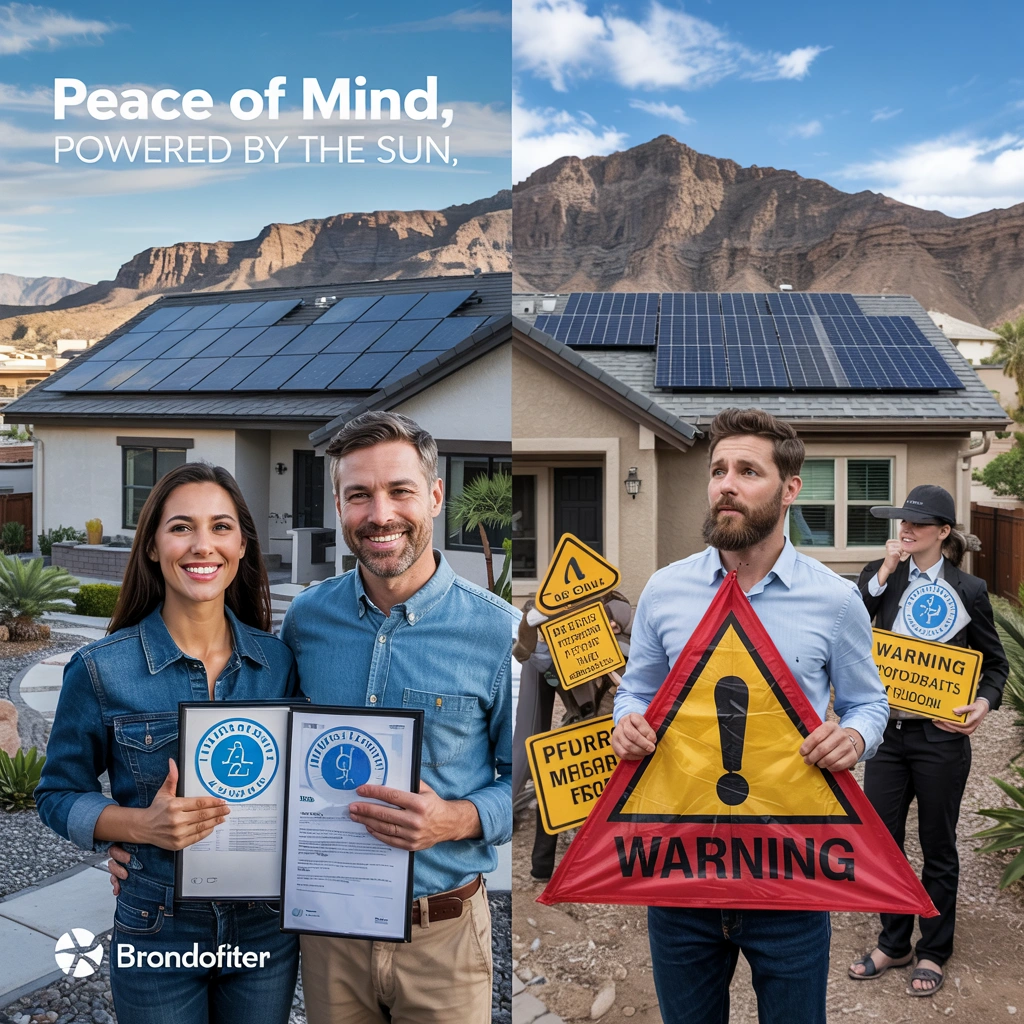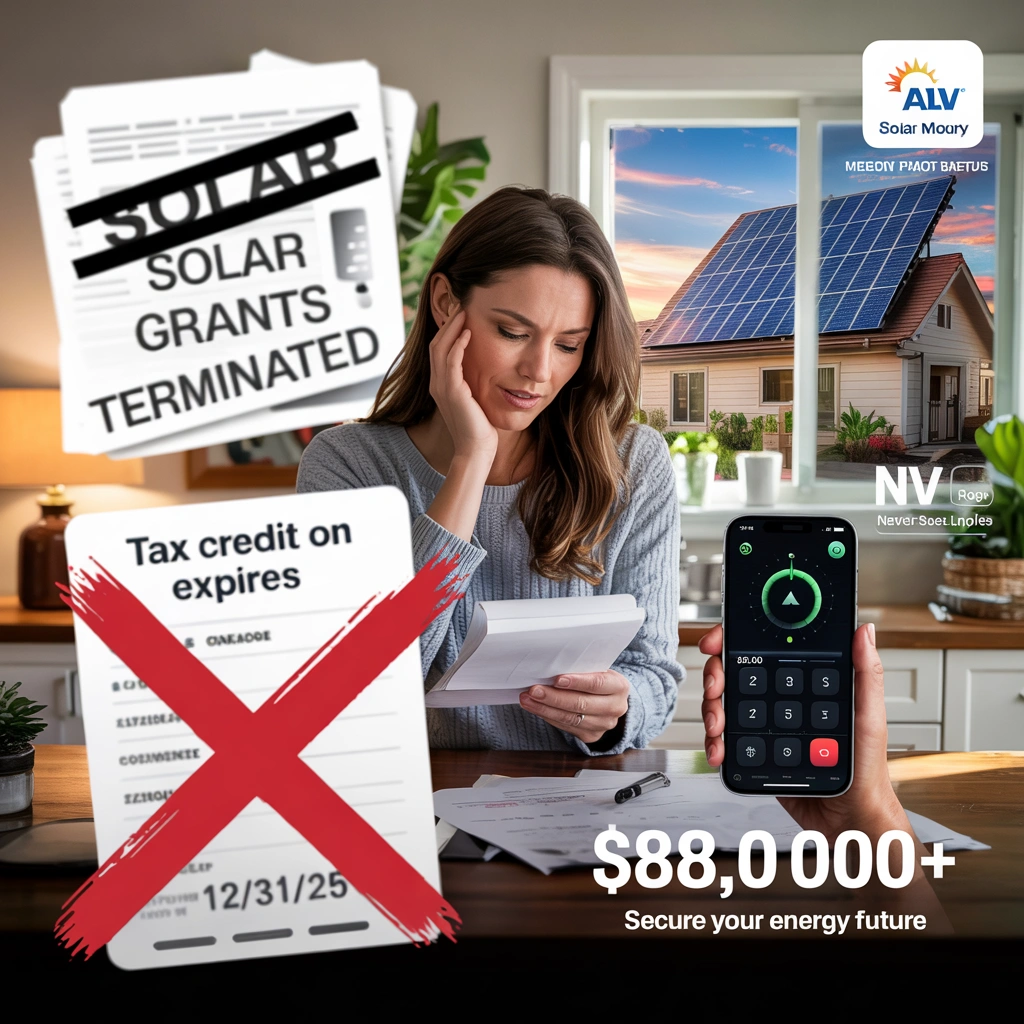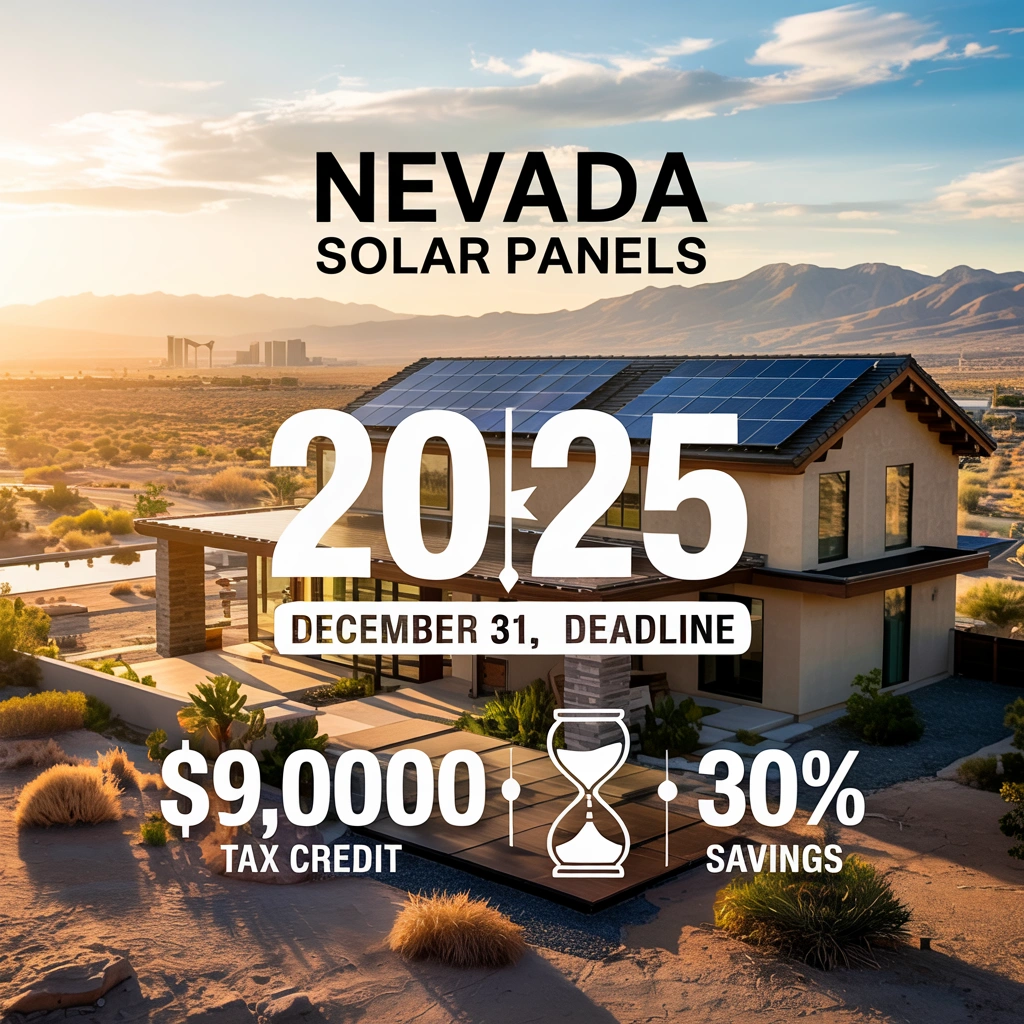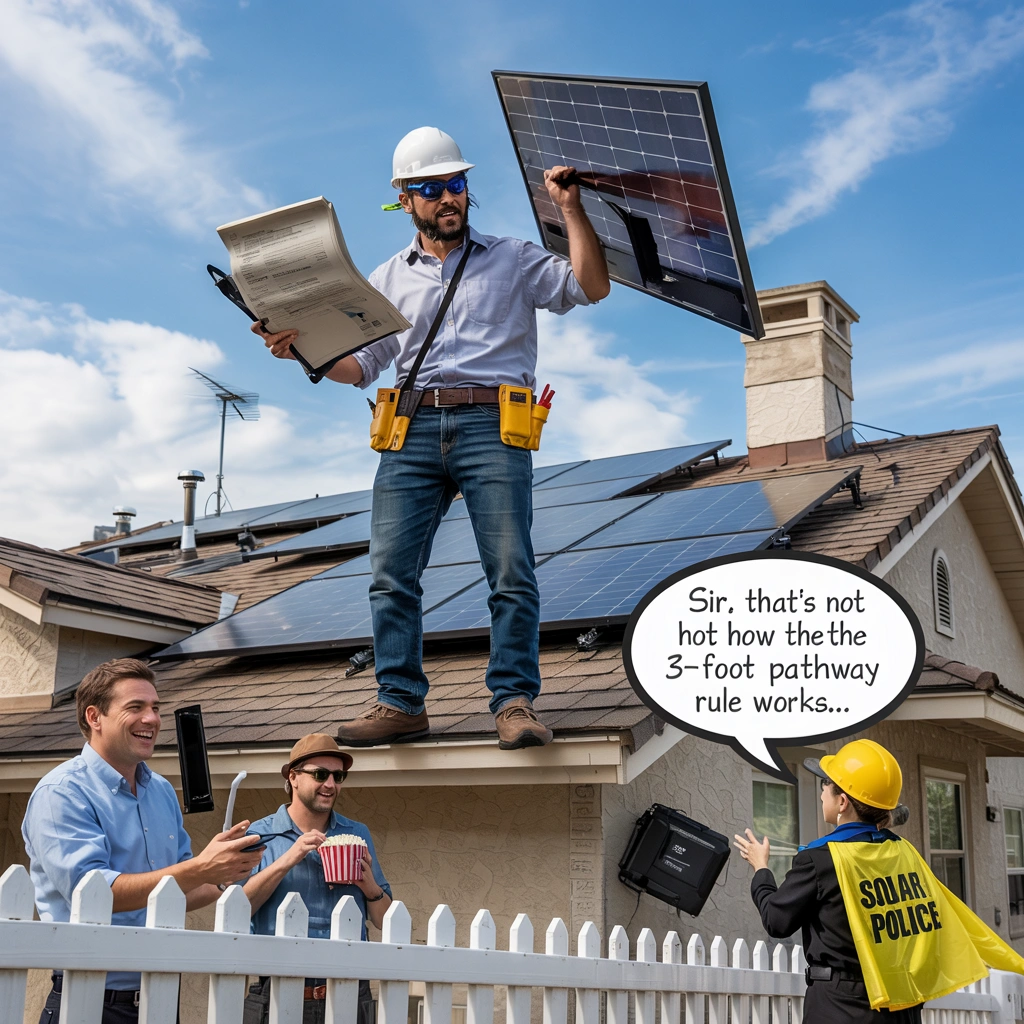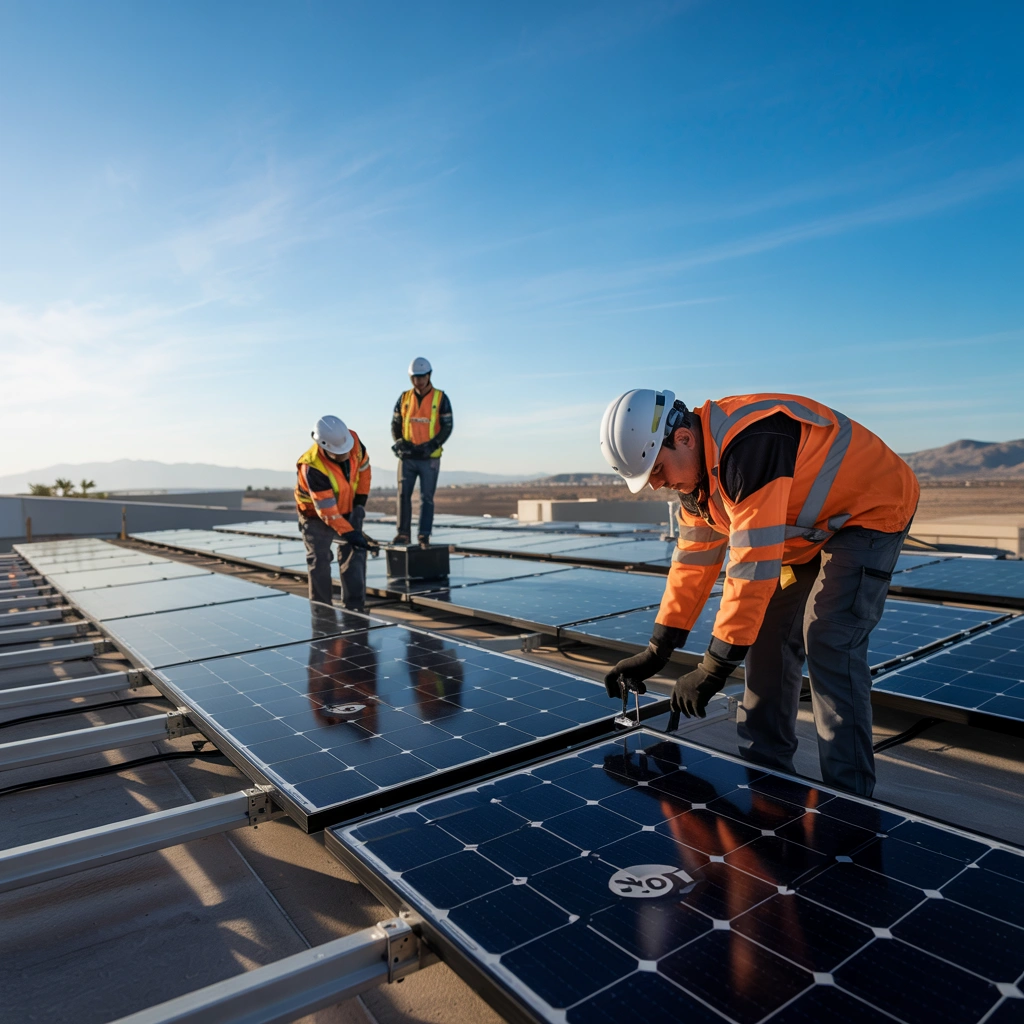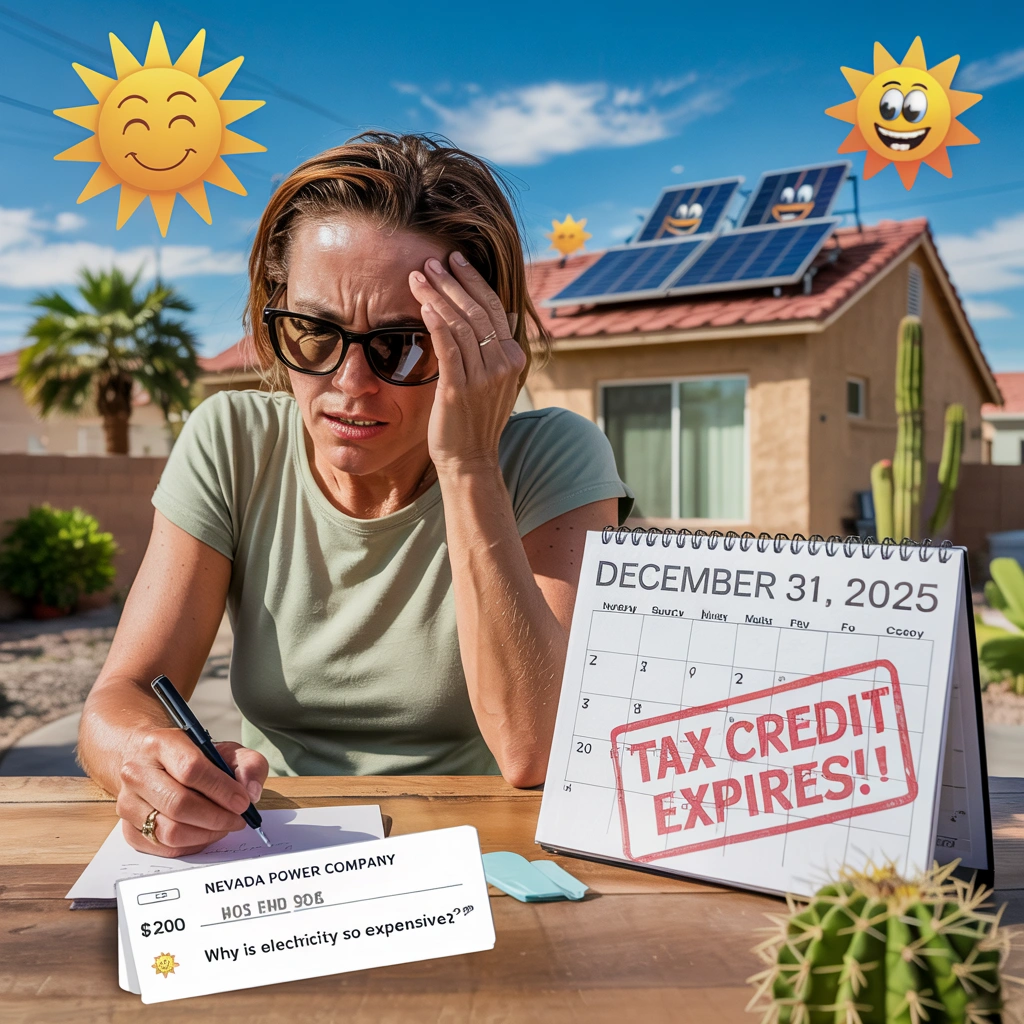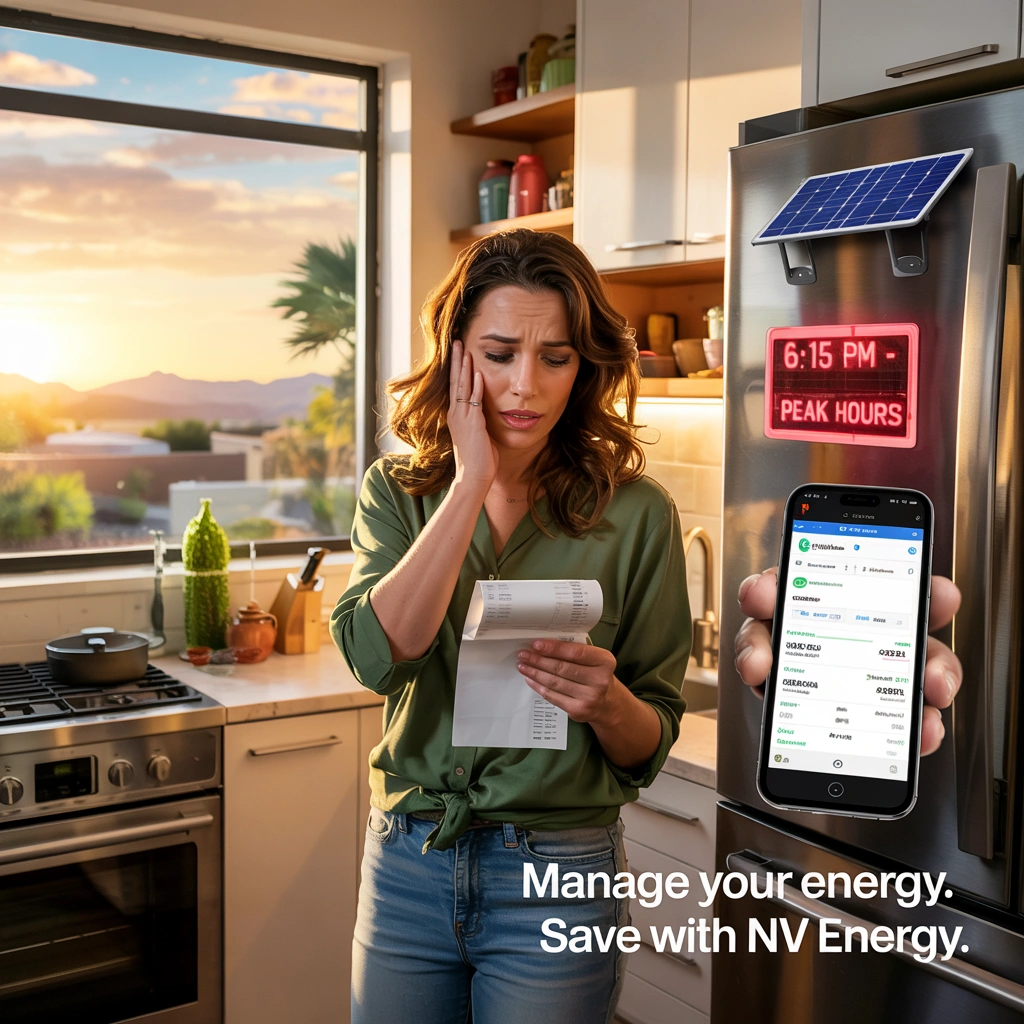What the Nevada “Solar for All” Grant Termination Means for Your Family’s Energy Bills
Summary: Nevada just terminated a $156 million solar program that would have helped 50,000 families slash their energy bills—but if you act fast, there’s still a way to save thousands before these remaining opportunities disappear forever. Key Takeaways Nevada’s $156 million Solar for All grant termination pauses efforts to help 50,000 families who were counting on subsidized solar power to reduce energy bills The EPA terminated the program through federal legislation, leaving families with fewer options for affordable solar installation Nevada families can still access a 30% federal tax credit for solar systems installed before December 2025, though this credit expires at year-end Alternative energy-saving measures like heat pumps and smart home systems offer immediate bill reductions without government assistance Several solar incentive programs remain available, but quick action is essential to maximize savings before deadlines The termination of Nevada’s Solar for All grant represents a significant setback for families struggling with rising energy costs. While this program would have helped thousands of households access affordable solar power, alternative pathways to energy savings still exist for those willing to act quickly. 50,000 Nevada Families Lost Solar Savings Opportunity Nevada’s Solar for All program would have transformed energy affordability for families across the state.…
How to Report a Solar Scam to the Nevada Attorney General’s Office.
Summry: Solar scam complaints in Nevada have skyrocketed 455% since 2021, with older people being the primary targets. If you’ve been approached by a “government-affiliated” solar company or pressured into signing immediately, here’s exactly how to fight back. Key Takeaways Nevada residents can report solar scams directly to the Attorney General’s office through multiple contact methods, including phone, online forms, and email Solar scam complaints have increased by approximately 455% from 2021 to 2024, with most victims being adults 60 years or older The Nevada State Contractors Board receives nearly 3,000 complaints annually, with approximately 1,000 involving solar companies Proper documentation, including contracts, payment records, and communication logs, strengthens scam reports and helps investigators build cases Attorney General Aaron Ford actively investigates consumer fraud and has secured over $118.5 million in recoveries for Nevada consumers Solar scams cost Nevada homeowners thousands of dollars each year through fraudulent practices and misleading sales tactics. When deceptive solar companies target residents, reporting these scams protects both individual victims and the broader community from ongoing fraud. Common Solar Scams Targeting Nevada Homeowners Solar scams in Nevada take many forms, from completely fraudulent businesses to legitimate companies using misleading information. These scams reach homeowners through door-to-door sales, telephone…
How to Calculate Your 2025 OBBB Solar Tax Credit for a Las Vegas Home.
How to Calculate Your 2025 Federal Solar Tax Credit for a Las Vegas Home Summary: Las Vegas homeowners have until December 31, 2025 to claim a 30% federal solar tax credit worth thousands of dollars—but there’s a specific calculation method and strict requirements you need to know to maximize your savings. Key Takeaways: Las Vegas homeowners can claim 30% of their solar installation costs as a federal tax credit in 2025 by completing IRS Form 5695 and meeting specific eligibility requirements. The federal solar tax credit ends December 31, 2025, due to the One Big Beautiful Bill (OBBB), making this the final opportunity to claim this substantial savings. A typical 6kW solar system costing $18,000 in Las Vegas results in a $5,400 tax credit, reducing the actual investment to $12,600. Battery storage systems also qualify for the same 30% credit when paired with solar installations. Nevada’s net metering program provides additional ongoing savings beyond the one-time federal tax credit. The clock is ticking for Las Vegas homeowners considering solar panel installation. The federal government’s 30% Residential Clean Energy Credit represents thousands of dollars in tax savings, but this opportunity disappears forever on December 31, 2025. With Las Vegas receiving approximately 310 sunny days…
The Nevada Homeowner’s Solar Scam Protection Checklist: How to Avoid a Bad Contract.
Summary: Nevada homeowners are losing hundreds of thousands to solar scams, with 20-33% of contractor complaints involving fraudulent solar companies. But there’s a new law that could change everything – and specific red flags you need to know before signing any contract. Key Takeaways Approximately 20-33% of contractor complaints in Nevada involve solar companies, making the state a hotspot for solar scams Senate Bill 293, effective January 1, 2024, strengthens consumer protections by requiring solar salespeople to be licensed or W-2 employees of licensed contractors Solar contractors can be verified through the Nevada State Contractors Board’s C-2, C-2g, C-37, or C-1 electrical classification systems Contract down payments are legally capped at $1,000 or 10% of the total cost, whichever is lower Multiple red flags exist that Nevada homeowners can recognize to avoid costly solar scams Nevada homeowners face unique challenges when considering solar panel installation. The state’s abundant sunshine makes solar attractive, but it also creates a breeding ground for dishonest companies targeting unsuspecting residents. Nevada Sees Major Increase in Solar Scam Complaints The Nevada State Contractors Board reports that approximately 20-33% of the 3,000 complaints it receives annually are related to solar companies. This alarming statistic highlights why Nevada has become ground…
Beyond the Tax Credit: How AI, Terminated Grants, and Your Utility Bill Make Solar an Essential Long-Term Investment
Summary: Nevada’s new utility demand charges could add $27-$38 to monthly bills starting April 2026, but AI-powered solar systems are now delivering 25-35% cost reductions through predictive maintenance. Here’s how the math is changing for homeowners. Key Takeaways: Despite the termination of Nevada’s solar grant programs and federal tax credit changes, solar investment remains financially sound due to falling equipment costs and rising utility rates AI-powered solar systems now offer smart energy management, predictive maintenance, reducing costs by 25-35%, and real-time optimization that adapts to environmental conditions NV Energy’s April 2026 demand charges may add $27-$38 monthly to utility bills, making solar’s peak-hour generation even more valuable Nevada homeowners can save approximately $40,000 over their solar system’s 25-30 year lifetime, with protection against escalating utility rates Strategic timing and expert guidance help homeowners navigate complex solar decisions while avoiding costly mistakes Nevada homeowners face a challenging landscape: government solar programs disappearing, federal tax credits changing, and utility bills climbing relentlessly. Yet this environment reveals why solar has evolved beyond dependence on government incentives into a robust, technology-driven investment opportunity. The fundamentals driving solar value—artificial intelligence optimization, predictive maintenance systems, and protection against rising electricity costs—create compelling economics that persist regardless of political changes.…
Protecting Yourself: A Nevada Homeowner’s Guide to Solar Scams & Warranties
Summary: Nearly one-third of Nevada’s 3,000 annual contractor complaints involve solar companies, but most homeowners don’t know how to spot the four major scam types targeting their neighborhoods—or that recovery funds up to $40,000 exist when things go wrong. Key Takeaways: Nearly one-third of the 3,000 complaints the Nevada State Contractors Board receives annually are related to solar companies, making homeowner education critical for avoiding costly scams Four major scam types target Nevada neighborhoods: door-to-door pressure tactics, fake government programs, deceptive lease traps, and fly-by-night operations Clark County requires specific permits and inspections that legitimate contractors always follow—scammers typically skip these steps Contract protection involves verifying licenses through nscb.nv.gov, understanding warranty terms, and keeping detailed documentation Recovery resources exist through the Nevada State Contractors Board’s Residential Recovery Fund, offering up to $40,000 per validated claim Nevada State Contractors Board Receives Nearly 3,000 Complaints Annually Nevada’s booming solar market attracts both legitimate installers and fraudulent operators seeking quick profits. Nearly one-third of the 3,000 complaints the Nevada State Contractors Board receives annually are related to solar companies. This staggering number reflects a growing crisis where scammers target Nevada’s abundant sunshine and attractive solar incentives. The state established a specialized Solar Investigations Unit specifically to…
The New Nevada Solar Tax Credit Deadline: An Urgent Guide for Reno & Las Vegas Homeowners.
Summary: The federal solar tax credit ends permanently on December 31, 2025—no phase-down, just gone. Nevada homeowners can save over $3,000 on installations, but with new net metering changes and permit delays, October bookings might be your last realistic chance. Key Takeaways: The federal solar tax credit, providing 30% savings on solar installations, ends permanently on December 31, 2025, with no phase-down period Nevada homeowners in Reno can save $3,355 on a typical 5kW system, while Las Vegas residents benefit from similar substantial tax credit reductions NV Energy’s Tier 4 net metering now offers 75% of retail rates for excess solar power, with proposed changes to 15-minute intervals affecting payback calculations Installation must be completed and operational by December 31, 2025, requiring homeowners to book by October 2025 to help ensure eligibility Nevada has implemented specific scam protection measures through the Solar Investigations Unit due to increased fraudulent activity during the rush period before the deadline Nevada homeowners face a critical decision point as the federal solar Investment Tax Credit approaches its final deadline. Unlike previous transitions that included gradual reductions, this credit ends abruptly after December 31, 2025, eliminating the 30% federal tax benefit that has made solar installations significantly more affordable for…
A Clark County Homeowner’s Checklist for a Smooth Solar Installation
Summary: Installing solar panels in Clark County involves specific permit sequences and fire code requirements that many homeowners overlook—but Nevada’s new Senate Bill 440 creates important protections that could save you thousands if you know how to use them correctly. Key Takeaways Clark County requires zoning approval before electrical permit submission, with specific fire code clearance requirements for roof access Nevada’s Senate Bill 440, effective October 1, 2025, protects homeowners’ solar rights while requiring HOAs to respond to installation requests within 15-35 days Working with the Nevada State Contractors Board licensed installers ensures eligibility for NV Energy incentives and proper permit compliance The inspection sequence follows a specific order: electrical rough-in, structural review, and net metering application through PowerClerk Homeowners can maximize their 30% federal tax credit through proper project cost budgeting before the December 31, 2025, expiration Nevada’s Solar Bill of Rights Protects Your Investment With Safety Requirements Nevada’s solar legislation creates a protective framework for homeowners investing in renewable energy systems. The state’s Solar Bill of Rights establishes clear safety standards and regulatory guidelines that prevent costly installation mistakes while ensuring long-term system performance. These protections extend beyond basic consumer rights to include specific technical requirements that safeguard both property values…
Choosing the Best Solar Panels & Equipment for Las Vegas’s Climate
Summary: Las Vegas homeowners installing solar panels face a costly mistake most don’t see coming. When roof temperatures hit 150°F, the wrong panel choice can cost you thousands over 25 years—but there’s a specific specification that changes everything. Key Takeaways: Las Vegas solar panels should have temperature coefficients of -0.30%/°C or better to minimize power loss in 150°F+ roof temperatures Monocrystalline panels typically outperform polycrystalline by 8-15% in extreme desert heat conditions Regular cleaning and professional maintenance maximize energy production in dusty desert conditions Climate-optimized solar equipment can increase ROI by $3,000-5,000 over 25 years compared to standard panels Why Temperature Coefficients Matter More Than Efficiency in 150°F Vegas Heat Las Vegas homeowners face a unique solar challenge. While the city receives over 290 sunny days annually, roof temperatures regularly hit 150°F during the summer months. Most solar panels lose efficiency as temperatures climb above 77°F, making equipment selection critical for maximizing energy production and return on investment. The temperature coefficient measures how much power output decreases for every degree Celsius above 25°C (77°F). In Las Vegas conditions where panels operate at 66°C (150°F), the difference between a premium panel with a -0.26%/°C coefficient and a standard panel at -0.45%/°C represents thousands of…
The Ultimate Guide to Solar Financing & Incentives for Las Vegas Homeowners
Summary: Las Vegas homeowners have just months left to capture a massive 30% federal tax credit worth up to $5,102 before it expires forever on December 31, 2025—but there’s a crucial timing factor most don’t realize. Key Takeaways The 30% federal tax credit expires December 31, 2025, potentially saving Las Vegas homeowners $3,263 to $5,102 on typical solar systems Four main financing options exist: cash purchase, solar loans, leases, and PPAs—each offering different benefits and long-term savings Zero-down solar programs are available with monthly payments often lower than current electricity bills NV Energy’s net metering offers 75% retail credit rates locked for 20 years for existing customers, though changes may be coming Solar installation typically takes 2-6 months, making immediate action necessary to capture 2025 incentives 30% Federal Tax Credit May Expire December 31, 2025 — Las Vegas Homeowners Can Cut Energy Bills Starting Day One Las Vegas homeowners face a time-sensitive decision window. The 30% federal Investment Tax Credit (ITC) expires after December 31, 2025, with no extension planned. This represents the largest single incentive available for residential solar installations, potentially saving thousands of dollars that will disappear forever in just months. For a typical 5kW system costing $10,875 before incentives, the…
